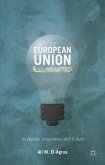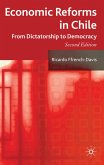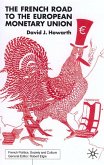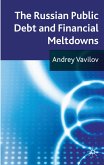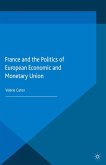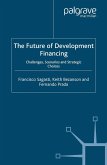The EU is under stress. Many believe in the euro's demise because they blame it for the 2008 financial crisis and the unwelcome austerity measures. Many resent the immigrants from the new EU member states, threatening the survival of the Single European Market. Many complain of a 'Brussels diktat', seeking an escape from joint EU decisions. Several member states want to unilaterally deal with the enhanced competition from the emerging markets, especially China, undermining the EU's 'common commercial policy', run by a single EU commissioner. And many in the UK want its exit from the EU, diluting EU unity and reducing its global influence. These concerns are either misguided or require a stronger EU to deal with them - this book aims to address these issues by considering the nature, importance and future of the European Union.
'Dr El-Agraa's book represents a gold old-fashioned piece of applied economics that combines elements of economic theory, political economy, statistical analysis, and institutional economics. There is a particular theme running throughout the narrative, often more implicit than overt, involving the economic pros and cons of the various political compromises that have inevitably been made in the creation of the Union, and in particular in the roles to be played by the individual members. It also takes this further by considering the possible paths forward within an ever-changing internal and external environment.
Over the years the former European Coal and Steel Community has transmogrified into the world's largest economic unit involving over 500 million people and the author provides explanations for this, and why it has largely been encouraged by outsiders. But it also sets this creation within larger economic changes that have seen the end of the Soviet Union and the riseof new mega-economic superpowers such as China, and more general trends in globalization. Thus he places the appropriate joint emphasis on internal economic integration within the EU, and the broader, global economic integration process that have been taking place. The book is an important addition to the study of the political economy of market structures and institutional challenges that underlie the ultimate outcomes. Europe is the central theme, but the analysis offered here has much broader connotations.' Professor Kenneth Button, School of Policy, Government and International Affairs George Mason University
'There is no shortage of books on the EU but Ali El-Agraa's new text offers an up to date assessment from an economic perspective of the contribution and progress of the EU and where it is going. With a comprehensive coverage of the wide ranges of EU policies, it offers an excellent starting point for those who want to get their mind round the problems.' Professor David Geoffrey Mayes, The University of Auckland
'This book provides a good and comprehensive overview for the general reader interested to learn more about the EU and how it works. It effectively debunks some of the common misunderstandings and downright misinformation about what the EU is and does.' Professor Iain Begg, European Institute, London School of Economics and Political Science
'El-Agraa offers a lucid insight into the past, present and future of the European Union (EU). He discusses many of the difficulties that the EU is faced with today. A veteran textbook writer, he has once again produced an outstanding book, fully up-to-date, written in a clear and accessible style a must-read for anyone who wishes to understand the ins and out of European integration.' Professor Amy Verdun, University of Victoria, Canada
Over the years the former European Coal and Steel Community has transmogrified into the world's largest economic unit involving over 500 million people and the author provides explanations for this, and why it has largely been encouraged by outsiders. But it also sets this creation within larger economic changes that have seen the end of the Soviet Union and the riseof new mega-economic superpowers such as China, and more general trends in globalization. Thus he places the appropriate joint emphasis on internal economic integration within the EU, and the broader, global economic integration process that have been taking place. The book is an important addition to the study of the political economy of market structures and institutional challenges that underlie the ultimate outcomes. Europe is the central theme, but the analysis offered here has much broader connotations.' Professor Kenneth Button, School of Policy, Government and International Affairs George Mason University
'There is no shortage of books on the EU but Ali El-Agraa's new text offers an up to date assessment from an economic perspective of the contribution and progress of the EU and where it is going. With a comprehensive coverage of the wide ranges of EU policies, it offers an excellent starting point for those who want to get their mind round the problems.' Professor David Geoffrey Mayes, The University of Auckland
'This book provides a good and comprehensive overview for the general reader interested to learn more about the EU and how it works. It effectively debunks some of the common misunderstandings and downright misinformation about what the EU is and does.' Professor Iain Begg, European Institute, London School of Economics and Political Science
'El-Agraa offers a lucid insight into the past, present and future of the European Union (EU). He discusses many of the difficulties that the EU is faced with today. A veteran textbook writer, he has once again produced an outstanding book, fully up-to-date, written in a clear and accessible style a must-read for anyone who wishes to understand the ins and out of European integration.' Professor Amy Verdun, University of Victoria, Canada


